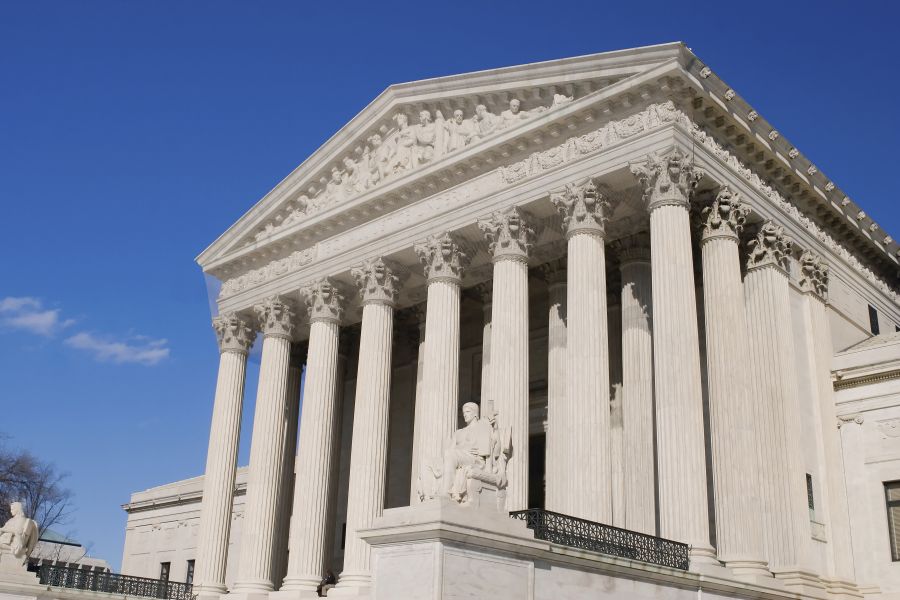FIRST FIVE LIVE: Hear two views on hate speech
First Five by the Freedom Forum Institute
Oct 28, 2021
Freedom of speech is the best-known First Amendment freedom. But free speech faces urgent and important questions, particularly around hostile or hateful expression and how, or if, it should be moderated by the government.
Nadine Strossen, former president of the American Civil Liberties Union and New York Law School’s John Marshall Harlan II professor of law, emerita, and Thane Rosenbaum, Distinguished University Professor at Touro College, recently shared their differing views on hate speech.
WHAT IS HATE SPEECH?
Because the First Amendment protects hate speech, U.S. laws don't define the term. It remains open to interpretation.
Is hate speech any idea or view that is not mainstream? Is it speech that offends or insults a particular person or group? Or must it go further and cause harm to the target?
Strossen says because hate is an emotion, hate speech is subjective. What one person might consider loving words, someone from a different background with different beliefs could see as hate. This makes it difficult, if not impossible, to regulate.
To Rosenbaum, though, hate speech can be objectively identified: It’s when speech or expression is no longer trying to convey an idea or message, but aimed only at shutting others down. For Rosenbaum, hate speech is an act of violence to intimidate, scare and ensure others are too afraid to participate in conversation.
Where America Stands on Hate Speech
A slight majority of Americans (57%) know hate speech is protected by the First Amendment. But should it be? No, 36% say — preventing hate speech is more important than protecting free speech. But 35% say protecting free speech should be prioritized. Read more from the “Where America Stands” survey.
WHEN ARE WORDS OR EXPRESSIONS NO LONGER PROTECTED SPEECH?
Some types of speech can cause harm, Strossen acknowledges. But freedom of speech was never absolute. Types of expression connected to physical harm, like direct threats, do fall into categories of speech that are not protected by the First Amendment.
But, Rosenbaum says, science now shows when words are used as weapons, they “actually cause harm, not just mental harm, but physical sickness.” Words weighted with that kind of harmful intent, Rosenbaum says, should no longer be protected either.
WOULD ANTI-HATE SPEECH LAWS PROTECT OR DIMINISH FREE SPEECH?
One argument is that laws to curb hate speech would protect free speech because they could limit the ways hateful speakers shut others down or scare others so they are too afraid to speak. As Rosenbaum says, "The enemy of free speech is no longer the government. It's the people."
However, Strossen and others argue hate speech laws are “very blunt tools." Even if well-intentioned, where they have been tried in practice, they tend to be used to limit the rights of the very people they’re designed to protect — like those who disagree with government. And they don’t successfully limit hateful ideologies.
More than four in 10 people say they have, at least once, kept silent out of fear. Even more keep their political opinions off social media altogether. Read more from the “Where America Stands” survey.
HOW SHOULD WE DEFINE THE LINE BETWEEN PROTECTED SPEECH AND PUNISHABLE SPEECH?
The United States is the only Western democracy that does not categorically punish hate speech, Rosenbaum notes. He shared examples of hate speech that should be punished because they are not what the Founding Fathers believed to be free speech: Nazis marching in areas where many Holocaust survivors live or white supremacist marchers taking to the streets with tiki torches at a 2017 rally in Charlottesville, Virginia.
To Rosenbaum, it would protect vulnerable and marginalized communities better to limit these types of actions. When asked whether we want the government to decide when speech crosses the line, he noted that the government would not be deciding — people sitting on juries would.
But for Strossen, laws should limit only behaviors, not beliefs, which requires protecting even abhorrent speech. And, she countered, protest permits issued by the city of Charlottesville did not authorize some of the actions seen that day.
For many of the more than 3,000 Americans surveyed for “Where America Stands,” though, there is one point with strong agreement: Free speech is important. And like Strossen and Rosenbaum, many might agree that hate is antithetical to a democratic society.
The questions and complexities lie in between. But that’s the beauty of the First Amendment: We get to have the conversation. And that is central to our democracy.
Thanks to Nadine Strossen and Thane Rosenbaum for a thoughtful dialogue on a provocative topic.
Watch the full discussion here and let us know what you think.









